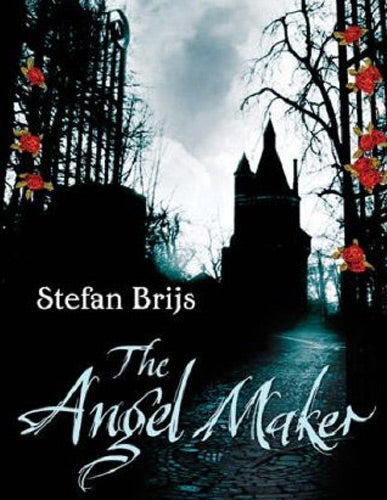The Angel Maker, By Stefan Brijs, trans Hester Velmans
A tall tale of angelic sons and lofty ideals

Your support helps us to tell the story
From reproductive rights to climate change to Big Tech, The Independent is on the ground when the story is developing. Whether it's investigating the financials of Elon Musk's pro-Trump PAC or producing our latest documentary, 'The A Word', which shines a light on the American women fighting for reproductive rights, we know how important it is to parse out the facts from the messaging.
At such a critical moment in US history, we need reporters on the ground. Your donation allows us to keep sending journalists to speak to both sides of the story.
The Independent is trusted by Americans across the entire political spectrum. And unlike many other quality news outlets, we choose not to lock Americans out of our reporting and analysis with paywalls. We believe quality journalism should be available to everyone, paid for by those who can afford it.
Your support makes all the difference.On the boundaries of Germany, Belgium and the Netherlands stands the Vaalserberg, at 322.7 metres Holland's highest point. Its height and tripartite identity are both important to The Angel Maker, where it is a regular presence and scene of the final disaster. Stefan Brijs is a prize-winning Flemish writer, but his novel is set in German-speaking Belgium, situated below the Vaalserberg with the old town of Eupen as its centre. It concerns activities that defied conventional science and were intended, literally, to defy God as well.
Yet it is important – especially for readers outside the Low Countries – to see its bizarre happenings in context. We enter a region of deeply conservative Catholicism, intimately related to traditionalist communities sceptical of the outside world. If the attempts of the man who dominates the book, Dr Victor Hoppe, to organise life on grander lines fail – and they do fail monstrously – can we not see him, as we see the Vaalserberg, as an eminence dwarfing the vicinity?
The novel's first section shows us Dr Hoppe from many angles, but never at close quarters. He returns to his native village, Wolfheim, after a distinguished career, abruptly terminated, at the University of Aachen. His neighbours reluctantly come to acknowledge his considerable medical abilities. But what of his personal life? Where is his wife, the mother of his male triplets? And why are these boys, called after the archangels Michael, Gabriel and Raphael, so obsessively protected? Only one teacher attends to their education. She comes, sadly, to realise that these clever yet disturbingly irresponsive boys are unnatural not just in identity – single but tripartite – but in origin.
Part Two delivers explanations by – very brilliantly – juxtaposing Hoppe's early life with his ground-breaking progress as an embryologist. In Part Three, we find out the history of his archangelic sons; a distressingly brief one. It relates too to the nemesis of the doctor himself.
The narrative is fast-paced, with a sizeable cast, yet it is Dr Hoppe's own section that moves us most and reveals the author's deepest intentions. Hoppe, we learn, hates God but loves Jesus. Artificial constructs like theology, whose instruments here are a brutal orphanage and a bigoted priest, and science, with its careerists, sharply etched, should be shunned in favour of nature and humdrum humanity.
Join our commenting forum
Join thought-provoking conversations, follow other Independent readers and see their replies
Comments